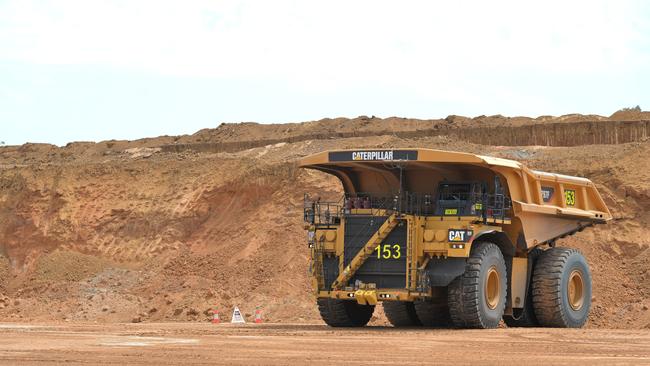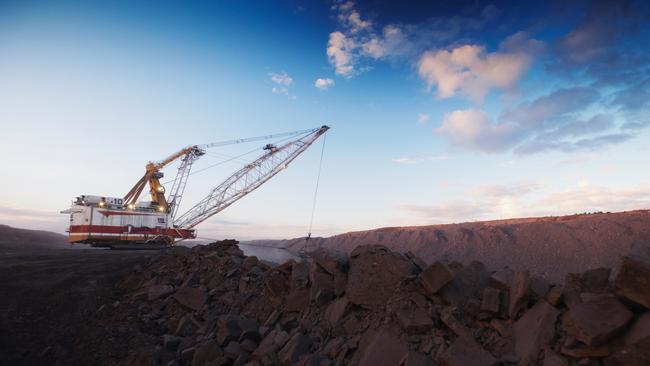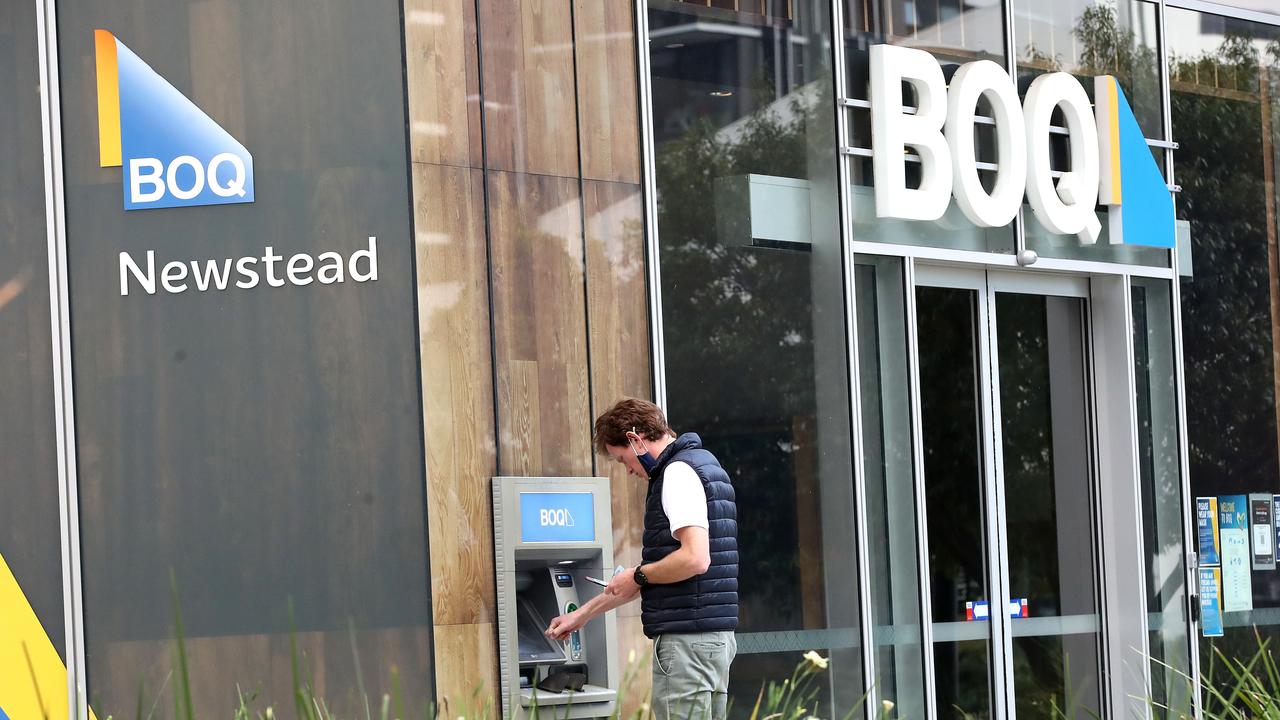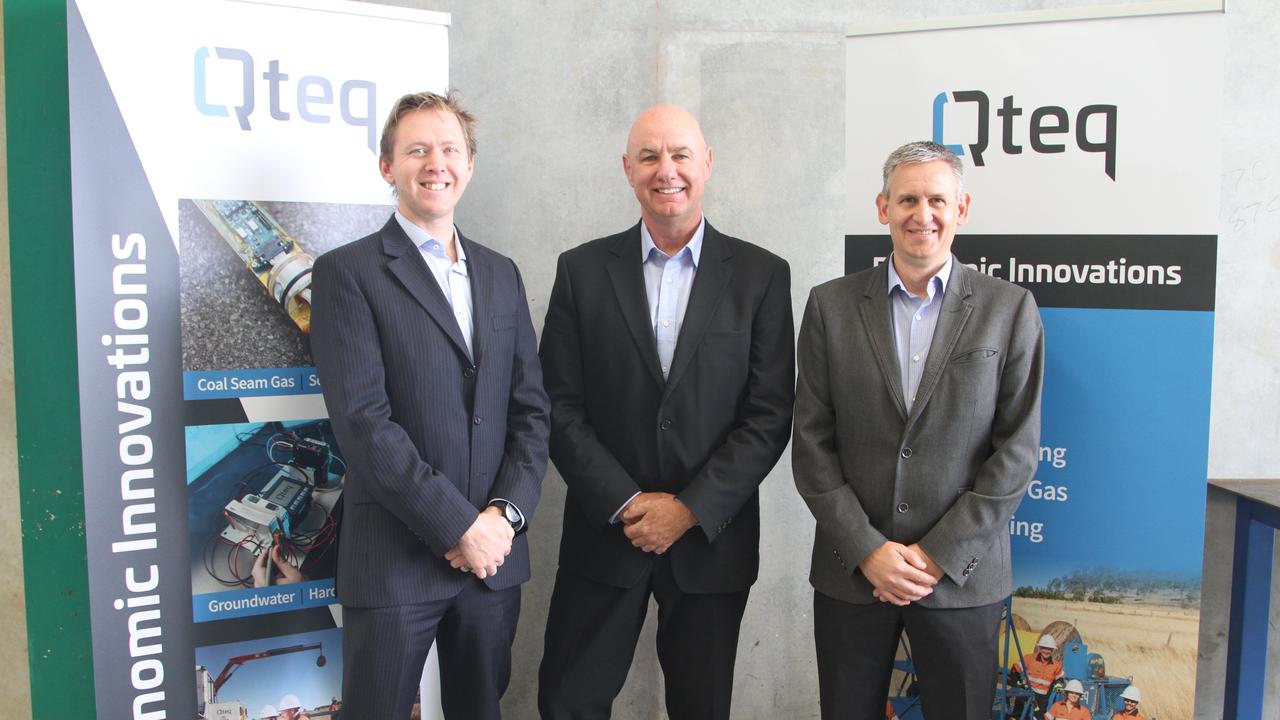Mining giant says latest sackings separate to corruption investigation
BHP-run coal miner BMA has dumped contractors hired for rehabilitation work in Queensland.

Business
Don't miss out on the headlines from Business. Followed categories will be added to My News.
BHP has cut ties with contractors involved in rehabilitation work on three of its coal mines in Queensland after a review which coincided with a separate corruption investigation.
Contractors hired to do rehabilitation work at the Peak Downs, Saraji and Caval Ridge mines were notified of the terminations on Tuesday.
Several contractors, including one majority owned by a local Aboriginal community, are affected by the move.
The biggest of the contractors shown the door, DNH Solutions, said it had about 200 workers engaged at the BMA mines.
The axe fell less than three months after the BHP-operated BMA coal business sacked 26 contractors after management uncovered evidence pointing to wrongdoing and launched a corruption investigation.
“The investigation is ongoing, this decision is unrelated,” a BMA spokesman said.
The January sackings also involved contractors carrying out mine rehabilitation work and subsequent investigations have centred on whether contractors were hired from within BMA for non-existent work, or for jobs where the extent of the work was greatly exaggerated.
The latest decision to axe rehabilitation contractors came after a separate review identified inefficiencies and potential cost savings.
BMA, Australia’s largest producer and supplier of seaborne metallurgical coal, is looking to cut costs and to get greater value for money from contractors as it grapples with weaker coal prices and pays an effective tax rate of 60 per cent in Queensland.
The BHP-Mitsubishi joint venture is required to progressively rehabilitate land while mining under the terms of a Progressive Rehabilitation Closure Plan required in Queensland.
“BMA has been reviewing its rehabilitation strategy to improve how we meet our rehabilitation commitments and enhance safety, cost and operational performance,” a spokesman said.
“An outcome of the review is to demobilise a range of equipment contracted to undertake rehabilitation works across Peak Downs, Saraji and Caval Ridge mines.
“We are improving the delivery of rehabilitation services across BMA. We are committed to rehabilitating the land within our mining leases, and we continue to work with the Queensland government, industry and our partners in accordance with the Progressive Rehabilitation Closure Plan.”

BMA said it was “very proud” to have rehabilitated almost 1300 hectares on its mining tenements to natural landforms over the past five years.
DNH operations manager Madonna Burgess said the writing had been one the wall for contractors since January, when BMA installed new managers to run rehabilitation.
Ms Burgess said DNH had won contracts for rehabilitation work over the past five years, but BMA management indicated on Tuesday its preference was to hire a major contracting firm from 2025-26.
“The new management have a different view on what rehab looks like versus the old management,” she said. “The coal price is not helping and everybody in the industry is looking to save a dollar.”
Ms Burgess said Queensland’s coal royalty regime — branded a major barrier to investment by BHP, Glencore and others — was having a negative impact across all parts of the industry.
“Everyone across the industry has felt the impact of that and, when it comes down to it, BHP and the likes have to look at their bottom line,” she said.
BMA’s rehabilitation shake-up also hit BB Country Services, a contractor majority owned by members of the Barada Barna indigenous community.
Barada Barna Aboriginal Corporation chairwoman Luarna Dynevor declined to comment when contacted on Tuesday.
However, BMA appears to have assured BB Country it will find alternative work for the firm and its machinery.
There is no suggestion DNH or BB Country Service are in any way linked to the sperate corruption investigation underway at BMA.
Contractors typically provide the machinery - bulldozers, trucks and diggers - and labour for rehabilitation at BMA mines.
BMA managers are responsible for rehabilitation work at key stage of a mine’s life, including design, revegation, community engagement and the decommissioning of mining equipment. The company declined to reveal its annual rehabilitation budget.
It is unclear when the BHP-led corruption investigation at BMA will conclude. BHP has been trying to determine the financial impact of any improper or unwarranted payments to contractors.
The contractors sacked in January were all hired for work at the Saraji mine but the investigation has included all mines in the BMA stable.
Whistleblowers who contacted The Australian after it revealed the investigation claimed one contractor became abusive and threatening when a BHP manager who suspected corruption asked to see invoice and timesheet details.
BHP launched its investigation on the back of one of its managers raising the alarm.
It is understood BHP investigators are aware of allegations the corruption was widespread and involves tens of millions of dollars were involved over the past five years.
BHP’s anti-corruption guidelines prohibit authorising, offering, giving or promising anything of value directly or indirectly to anyone to influence them in their role, or to encourage them to perform their work disloyally or otherwise done improperly.
Investigations are managed by lawyers within BHP’s compliance team and all employees receive annual training on the guidelines that prohibit bribery and corruption.
More Coverage
Originally published as Mining giant says latest sackings separate to corruption investigation





